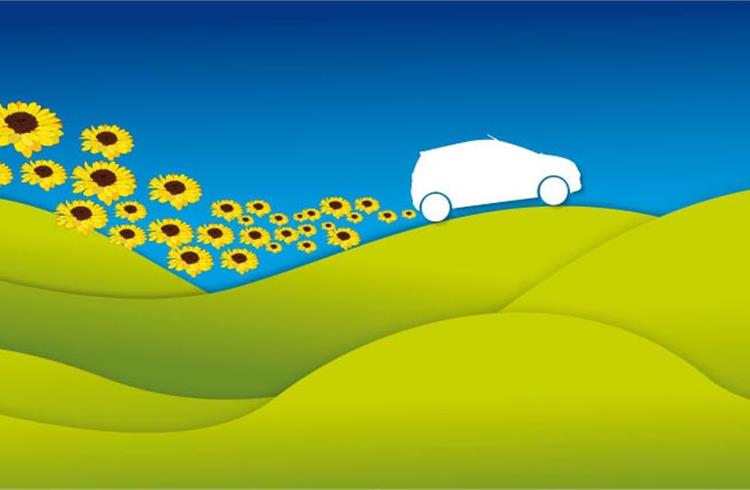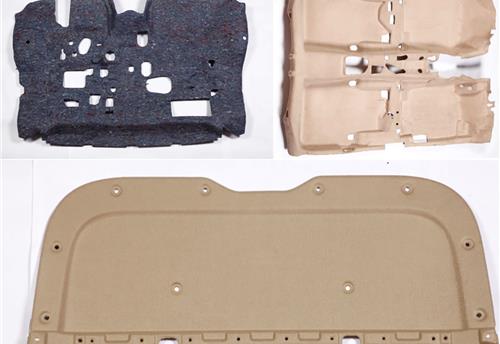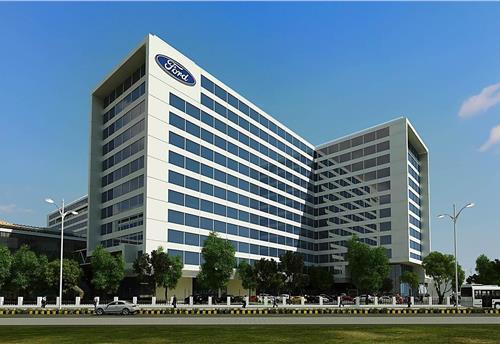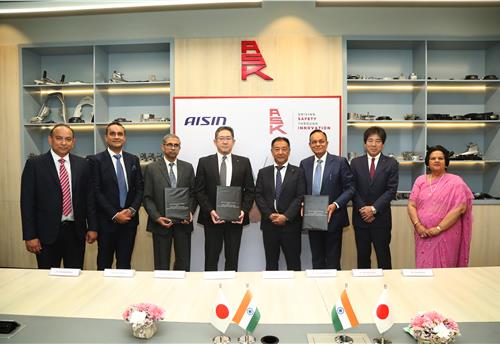Supreme Court bans sale of BS III vehicles in India from April 1
The judgement comes a day after the government had sided with the automobile industry and urged the government to retail their existing inventory of BS III vehicles after April 1, 2017 when BS IV comes into effect.
It was a judgement the entire Indian automotive industry was awaiting. Early in the afternoon today, the Supreme Court banned the sale of Bharat Stage (BS) III vehicles from April 1, 2017.
Observing that health of the people is "far, far more important than the commercial interests of the manufacturers," the apex court said that the makers of such vehicles have declined to take "sufficient proactive steps" despite being fully aware that the firms would be required to manufacture only BS-IV compliant vehicles from April 1, 2017.
The court also prohibited registration of vehicles, which do not meet Bharat Stage-IV emission standards, from April 1 except on a proof that such a vehicle was sold on or before March 31, as per a PTI report.
"All the vehicle registering authorities under the Motor Vehicles Act, 1988 are prohibited for registering such vehicles on and from April 1, 2017 that do not meet BS-IV emission standards, except on proof that such a vehicle has already been sold on or before March 31, 2017," the bench said, adding detailed reasons for this order would be given in due course.
The Society of Indian Automobile Manufacturers (SIAM) had earlier informed the apex court that companies are holding stock of around 824,000 vehicles, which are not BS-IV compliant, including 96,000 commercial vehicles, over 600,000 two-wheelers and around 40,000 three-wheelers.
Reacting to the courts order banning BS-III vehicles, SIAM termed it as "frustrating", saying the existing law allows sale of these vehicles and this fact was ignored. "We all have to respect the Supreme Court verdict," SIAM president Vinod Dasari said.
Noting that as per a government notification, sale of BS III vehicles was allowed after April 1, he said, "Now suddenly those BS III vehicles are banned. I find it quite frustrating that something like this happens."
Green bodies lauded the courts decision, terming it as an acknowledgement of the public health crisis and a step in right direction towards fighting air pollution. Environment experts said the transition was "critical" as the movement from BS-III to BS-IV could lead to substantial reduction in particulate matter emission.
"This is a significant step forward as this gives the message and the lesson that the automobile industry will have to walk the extra mile to address the expansive concern around public health and not weigh down the transition by taking a very narrow technical view," executive director, Centre for Science and Environment (CSE) Anumita Roychowdhury said.
The judgement came a day after the government had sided with the automobile industry and urged the Supreme Court to allow automakers to retail their existing inventory of BS III vehicles after April 1, 2017 when BS IV emission norms come into effect.
Given the Supreme Court's verdict, some automakers and their dealers holding stock of BS III vehicles are bound to be impacted adversely. It is understood that the automobile industry currently has a BS III vehicle inventory in the region of 825,000 units comprising 96,725 commercial vehicles, 670,000 two-wheelers, 40,000 three-wheelers and 16,000 passenger cars.
It may be recollected the debate about production and sale of BS IV-compliant vehicles got a new charge when Rajiv Bajaj, managing director of Bajaj Auto, announced on February 15 this year that the company was ready to comply with the Environment Pollution Control Authority's (EPCA) direction of neither selling nor registering any pre-BS IV vehicle from April 1, 2017.
Earlier in the year, the Central Pollution Control Board had confirmed that BS III-compliant vehicles could not be sold or registered anywhere in the country from April 1, 2017. However, some automobile companies had requested that this deadline be extended.
A top industry executive told Autocar Professional that he expected the judgement, even though he may not agree with it. Automobiles may not be the only source of pollution but are the most visible source and that could have had a bearing on the judgement.
Toyota bats for BS IV, urges phasing out of BS I, II vehicles
Yesterday, Toyota Kirloskar Motor issued a statement urging the government to stringently enforce BS IV compliance. “We at Toyota Kirloskar Motor are concerned about the increasing pollution levels which needs immediate attention from all walks of life. Amidst the ambiguity over enforcement of BS-IV norms, we strongly uphold the Indian government’s move on phasing out BS III vehicles. This is a step in the right direction. Toyota Kirloskar has stopped manufacturing of BS III vehicles more than a year ago as we believe in providing state-of-the-art technology through our vehicles in our country’s fight against pollution. All our vehicles currently being sold in India are BS IV compliant. Here, we would urge the government also to put in place an enabling framework to phase out BS I and BS II vehicles (which continue to ply on Indian roads).
"We further gear up to meet the future challenges associated with the roll-out of BS VI technology by 2020. We remain confident that our oil and gas Industry will provide BS VI fuels before 2020 to enable the auto industry to synchronise its production of BS VI-compliant vehicles accordingly. To emerge as a world-class automotive manufacturing hub for cleaner vehicles, we need a concerted effort from the government, the oil and gas industry and the automotive Industry to work closely in creating an enabling ecosystem,” the company said.
Tata Motors calls it a 'penalty', Ashok Leyland says 'minimal impact'
However, the real impact of the decision on companies, their dealers and BS III stock is yet to sink in. Tata Motors issued a statement saying that the “decision by the Hon’ble Supreme Court to ban sale of all BSIII vehicles from April 1, 2017 is an unexpected and unprecedented move that will have a material impact on the entire automotive industry, OEMs and dealer network.
The industry had planned the current transition into BS IV in line with the accepted past practice of stopping production of earlier emission standard vehicles effective from the transition date. In the context of this previous experience, this decision by the apex court is a ‘penalty’ to the entire automotive industry.”
Meanwhile, Ashok Leyland clarified its position saying, “Contrary to the various reports in the media about Ashok Leyland having to take a huge write-off of BS III inventories, the company clarifies that the impact will be minimal.
Ashok Leyland has been making BS IV vehicles since 2010 and has sufficient capability and capacity to make BS IV vehicles. However, since BS IV commercial vehicles cannot run properly on BS III fuel – and such fuel is not available nationwide – our customers continued to buy BS III vehicles.
Given the current demand, majority of the vehicles in the pipeline have already been sold. Some more will be sold in the next couple of days where we have customer orders. Of the little inventory that we expect to remain beyond this, we will export them to other markets where we have significant presence and still operate on BS III norms. Finally, for any other vehicles still leftover, the company confirms that it will be able to easily upgrade them to BS IV at minimal cost.”
Abdul Majeed, partner and automotive expert at Price Waterhouse, said: "The decision taken by the Supreme Court will definitely impact the industry specifically the two-wheeler and commercial vehicle segments. Going forward, I think automakers have to engage more with the government and other associated stakeholders just to ensure that complete clarity prevails on incoming mandates. As I understand, the Supreme Court and the Government are looking at the larger picture in terms of environment and sustainability.
"I believe that when the mandate was first published, it should have clearly mentioned that automakers would not be able allowed to sell and register their BS III-compliant vehicles after 1 April 2017. Also, the automakers should have approached the government and EPCA to understand viable treatment for the inventory of BSIII-compliant vehicles.
"The OEMs will have to go to the export markets to dispose their inventory of BS III vehicles. That is the simplest option. The second option is that they might opt for the re-fitment with new BS IV-compliant engines but that will come with increased costs. I think it would be hard to sell such a stock in the domestic market.
"The takeaway from this is that all stakeholders – automakers, the apex bodies, EPCA, government officials and others must all come together to ensure better compliance with laws and bring more transparency so that we avoid such a situation in future. I hope the automakers will become more agile after this ruling."
Commenting on the Supreme Court judgement, Shrikant Akolkar, research analyst (Auto & Auto Ancillary), Angel Broking, said: “The Supreme Court’s contention was that since the deadline of April 1 for BS-IV was already known in advance, auto companies cannot offer inventory as an excuse. The auto industry currently has an unsold inventory of nearly 820,000 BS-III vehicles having a combined value of Rs 12,000 crore. The argument of the Society of Indian Automobile Manufacturers (SIAM) is that the production had to be increased after January 2017 as demonetisation had negatively impacted their output in the months of November and December 2016. The chunk of the inventory of BS-III vehicles pertains to the two-wheeler segment and these may have to be diverted to the international markets where BS-III vehicles are still permitted. As passenger vehicle manufacturers have already started to manufacture BS IV-compliant vehicles, we do not expect any big impact on passenger vehicle manufacturers.”
However, Rakesh Batra, partner and automotive sector leader at EY, says: “The Supreme Court decision will result in difficulties for the entire automotive value chain, on top of cost increases to comply with BS IV vehicle production and GST implementation. This industry works globally on 20 to 30 days’ inventory within the distribution channel and this should have considered as part of the transition plan when migrating from BS III to BS IV. Unfortunately a last-minute decision does not help any of the industry stakeholders or consumers, in the month of March when volumes are higher due to year-end purchases and deals.”
Also read: BS IV: Two-Wheeler OEMs ready and willing, some more than others
RELATED ARTICLES
Uniproducts India targets 15% growth till FY2027, eyes new EV OEMs for NVH parts
The Noida-headquartered company, which is a leading manufacturer of roof liners, floor carpets, sound insulation materia...
Ford to build more EV software capability at Chennai tech hub
Ford Business Solutions India, which currently employs 12,000 personnel set to add 3,000 more; Ford, which is known to b...
ASK Automotive to set up JV with Aisin to sell aftermarket parts for cars
Ask Automotive will have 51% of the equity of the joint venture to be set up with Aisin Asia (Thailand) Company and Aisi...





 By Autocar Pro News Desk
By Autocar Pro News Desk
 29 Mar 2017
29 Mar 2017
 8567 Views
8567 Views









